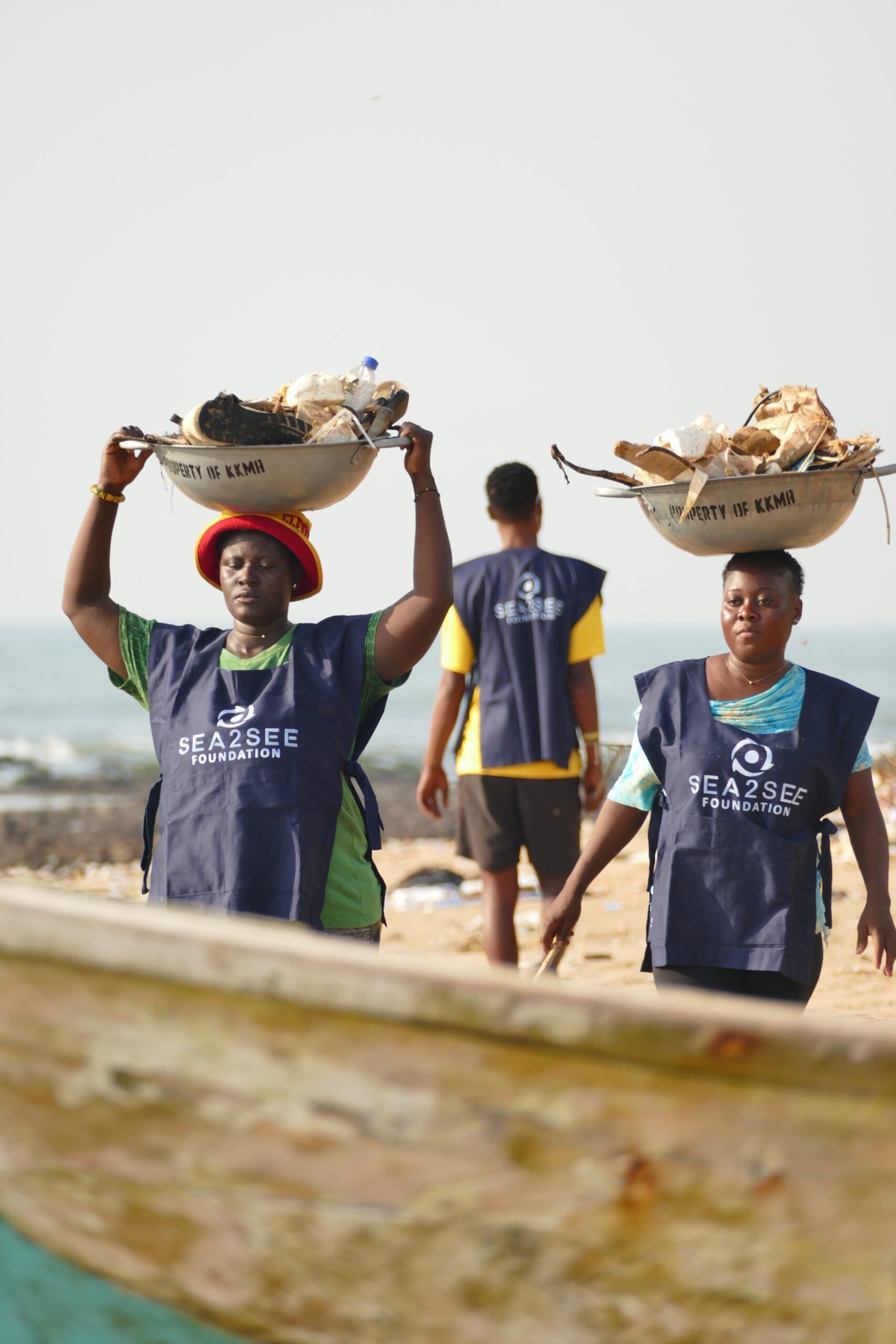Sea2See expands activities in Ghana

Protecting the marine environment
The Sea2see Foundation, the non-profit organisation behind ‘seastainable’ eyewear brand Sea2see, has broadened its waste collection and clean-up activities in Ghana to protect the marine environment and eliminate marine waste.
The Foundation is operating in Ghana where marine plastic pollution still needs to be radically reduced. The initial clean-up programme by the foundation has concentrated on waste management and the removal of marine waste from beaches, lakes and rivers and involves local men and women who receive a new source of income for the work. The foundation has established 20 sites for waste collection, with optimised logistics, putting in place 20 reps who are employed to manage and run the Sea2see project across the country. An initiative via the local radio advises locals where they can leave waste and old fishing nets, and arranges for them to bring their bags to be sold – a Sea2see agent will control and weigh the waste and pay them.
Sea2see is the only ‘seastainable’ eyewear label in the optical industry to run side by side its own non-profit organisation implementing a programme to collect the waste plastic from the marine environment (sea, beaches, rivers and coastal environments) and recycling it into raw Upsea Plast pellets – giving it a second life. This material can be used to produce other products, such as Sea2see’s eyewear collections.
Currently, a waste collection of 350-400 tons a year is underway via the foundation, of which approximately 300 tons is valuable and can be up-cycled for the Upsea Plast.
“With 1m3 (1000kg/1 ton] of recycled material we produce an average of 35,000 frames – and we only used about 5000kg last year – something quite insignificant in the face of the climate emergency. Our foundation enables us to collect more than 250m3/250.000kg per year in Ghana and this is how we will deploy in other parts of the world such as the Cameroons, Sri Lanka, Zimbabwe, and the Philippines….,” said Francois van den Abeele, founder of Sea2see.
Francois returned to Africa in August 2022, to develop the collection clean-up programmes that he has developed since 2016. He also spent several days with the team behind Pacodep/Freetheslaves, an NGO which Sea2see has collaborated with since 2019. The foundation is investing in the education programme for children rescued from slavery in the fishing industry.
“Our aim with the Sea2see Foundation is to find solutions to protect marine environments from plastic pollution and contribute to the elimination of marine waste in countries such as Ghana,” explained Francois. “We are also supporting the local initiative to rescue children from slavery on the Volta lake with funding for their education. I believe in taking direct action in order to achieve a real and tangible impact in the face of the climate emergency and I am committed to continuing this legacy and developing our projects – both social and environmental, further afield.”
Replicating the model achieved in Ghana, the Sea2see Foundation will launch a pilot project for marine waste collection in Madagascar this month and, within the next few months, in Cameroon, the Philippines and Sri Lanka. The work will continue to place all focus on the impact the foundation can achieve as an environmental and social entity, going far beyond their needs as a ‘seastainable’ eyewear maker in terms of quantity of marine waste recovered.